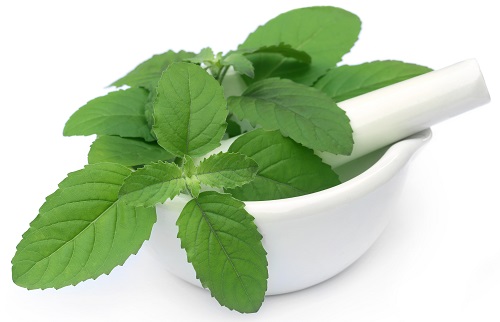The natural ways to stop coughing maybe even more effective than commercial cough syrups, whether it’s a dry hacking, cough or a little tickling cough that just won’t let up. This post will cover some of the most effective home remedies for cough, for children and adults. Learn how to soothe a cough so that you can relax. At one point or another, we’ve tried just about all of these, depending on who is coughing and what kind of cough they have.
We hope you will also find them useful. Remember–Please visit a trained medical professional if coughing is severe, hangs around for more than a few weeks or produces thick mucus. If you are unable to breathe or there is blood in your sputum, please do not hesitate and get emergency medical care. Below, we gather some easy and best home remedies for cough.
Tips on how to get relief from Cough:
If your cough prevents you from focusing on the day-to-day tasks (and possibly distracting your colleagues), these tips can help as a natural cure for cough!
- Stay Hydrated: It’s always a good idea to get enough fluids, even more so when you are suffering from a cough, as staying hydrated helps thin your mucus, makes a cough more productive, and potentially helps fight your infection.
- Have Honey: Honey has been used for ages as a home cough remedy, and research shows that giving children honey reduces their nighttime coughing. Honey worked as well as dextromethorphan-containing medicines. However, due to possible impurities and the risk of infant botulism, honey is not suggested for children younger than 1 year.
- Keep your head raised as you rest: Sleeping with an elevated head may reduce postnasal drip coughing. Sleeping this way also helps to alleviate GERD (gastroesophageal reflux disease) that can lead to coughing.
- Steam Inhalation: Steam can help break down mucus causing a chesty cough and help you to cough it up, but care should be taken to avoid burning yourself with hot water or steam.
- Use a Room Vaporizer: (make sure that it is out of the reach of children), or sit with your head over a bowl of hot water and a towel over your head to inhale the steam. Menthol, camphor or eucalyptus can be added to the water.
- Drink plenty of fluids that can make the mucus thinner and easy to cough up.
- Take a hot, steamy shower to help break down the mucus (phlegm) and make coughing up easier; get plenty of rest.
- If you’re a smoker, giving up smoking will help.
- Do not take a cough suppressant because it suppresses cough, causes mucus (phlegm) build-up in the lungs and increases the risk of infection.
- Do not take sedating antihistamines as they tend to dry and leave secretions in the lungs.
- Do not take a combination of a cough suppressant and expectorant.
Best Home Remedies For Cough:
Here we enlisted 10 simple and best home remedies for cough with how to use and precautions. Let’s have a look at them.
1. Ginger:
Ginger is a superfood with many benefits, and one of its better-known properties is the treatment of cough. Ginger can alleviate dry or asthmatic cough because it has anti-inflammatory properties. It can also relieve pain and nausea. One study suggests that some ginger-based anti-inflammatory compounds may relax membranes in the airways, which may reduce coughing.
How To Use:
- Add 20–40 grams (g) of fresh ginger slices to a cup of hot water to make a soothing ginger tea.
- Allow a few minutes to steep before you drink.
- Add honey or lemon juice to further soothe a cough to enhance the taste.
- Drink ginger tea twice a week, and an excellent remedy for cough.
Result Time:
- Drinking lukewarm ginger water 2-3 times daily can provide instant relief from the dry cough.
2. Saltwater Gargle:
When used for gargling, sodium chloride or common salt works effectively against cough and neck pain. It gives the throat humidity, acts as an antibacterial agent, and relieves pain. Doing this once in a few days can prevent future throat and upper respiratory infections. This is an ancient therapy that treats cough and cold effectively. Although the remedy may seem relatively simple, a gargle of salt and water may help soothe a scratchy throat that causes you to cough.
How To Use:
- It can help relieve irritation by mixing 1/4 to 1/2 teaspoon of salt with 8 ounces of warm water.
- Note that it is not particularly suitable for children under the age of 6 to gargle.
- Trying other remedies for this age group is best.
- You can gargle multiple times a day to reduce your cough.
Result Time:
- Repeat saltwater gargle 2-3 times a day and find relief in the cough in just a couple of days.
3. Milk and Turmeric:
Turmeric, an essential ingredient found in nearly all Indian kitchens, is a potent antioxidant that helps address many health issues. Warm milk or, any warm liquid, by hydrating the dry, raspy throat, helps relieve a cough. It also reduces congestion in the chest and helps with sputum expulsion. Turmeric is going to go a long way in curing a nasty cough with its amazing healing and antibacterial qualities. This is one of the best home remedies for cough.
How To Use:
- Turmeric mixed with warm milk is a popular and effective way to combat cold and cough.
- Before sleeping, drinking a glass of warm turmeric milk helps to recover from a cold and cough more quickly.
- Take a glass of milk and add 1tsp of turmeric powder to it.
- Let the milk boil for 5-7 minutes. Strain the milk and drink when it’s still hot.
Result Time:
- Turmeric milk can relieve you from coughing in just a couple of days.
4. Masala Chai:
In Indian households, masala chai or spiced tea is one of the go-to home remedies for dry cough. Black pepper, cinnamon powder, cardamom, and cloves pack an extra heat that offers relief from dry cough. The antioxidant quality of cardamom and cloves also helps to neutralize the toxic and cough-causing effects of pollution and dust particles.
How To Use:
- Boil some water; add black pepper, cinnamon powder, cardamom, and cloves. Steep for 5 minutes and drink this tea.
- Drink masala chai every day to get rid of cough.
Result Time:
- Drinking masala chai daily or even twice for severe cough helps you soothe the throat pain and relieve from cough in 2-3 days.
5. Essential Oils:
Eucalyptus oil is an expectorant, and in no time, it will relieve cough, headache, body ache, and a blocked nose with its antibacterial action. Tea tree oil has been a multipurpose antimicrobial agent capable of treating the infection. On the other hand, thieves oil has more beneficial properties as it is a mixture of essential oils such as lemon, cinnamon bark, clove, rosemary, and eucalyptus. It works as an expectorant, an antimicrobial, and an anti-inflammatory agent that can relieve your throat.
How To Use:
- You’ll need some drops of eucalyptus oil, tea tree oil, or thieves oil.
- Rub on your neck and sinuses the essential oil of your choice.
- You can apply one or two drops on the chest as well.
- Do this twice a day, especially before going to bed.
Result Time:
- Using these essential oils twice a day, especially before going to bed, will provide considerable relief from cough and cold in a couple of days.
6. Honey and Lemon:
Honey is a cough reliever that is gentle yet effective. It is demulcent and has soothing properties that can relieve continuous coughing in an instant. In lemon juice, vitamin C helps to recover quickly from the infection. This remedy can also be used in children to relieve cough.
How To Use:
Ingredients:
- 2 tablespoon honey
- ½ teaspoon lemon juice
- 1 cup of hot water
Method:
- Add the honey to boiling water and stir well.
- Add the juice of the lemon and mix well. Drink this mixture.
- Have this liquid once in the morning and once in the evening.
Result Time:
- Honey and lemon are very effective on dry cough; you can notice the difference within just 2 days.
7. Thyme:
You can solve your cough problems with this beautiful, delicate herb. Thyme has antimicrobial properties which treat the cough-causing infection. It is also mildly remedial and can help reduce throat pain from cough. When you drink this herbal tea, you will experience instant relief.
How To Use:
Ingredients:
- 1 teaspoon thyme leaves
- 1 cup of water
Method:
- Boil the leaves of thyme in water for a couple of minutes until the water is reduced by half.
- Sip the liquid.
- Have it once or twice a day.
Result Time:
- Thyme is very effective on cough; you can feel the difference in just 1 day.
8. Basil:
The leaves of Basil have wonderful healing qualities. They are analgesic and antimicrobial and can relieve pain. Their anti-inflammatory, antioxidant, and immunomodulatory properties will help the cough recover quickly.
How To Use:
Ingredients:
- ½ cup of basil leaves
Method:
- Wash and chew the basil leaves.
- You can add a pinch of salt and some black pepper if the taste is too strong.
- Chew the leaves of basil 2 – 3 times a day.
Result Time:
- The basil leaves will soothe the throat and relieve the cough in a couple of days.
9. Licorice:
Liquorice is the root of a leguminous plant from parts of Europe and Asia, Glycyrrhiza glabra. This plant’s dried roots were used as a traditional cough remedy. Usually, children are given a stick of liquorice to chew on to avoid coughing. In fact, from this practice, liquorice candies came into being, although the ones you get today do not contain any real liquorice, only sugar.
How To Use:
- Liquorice can be used in various forms to relieve the respiratory tract’s sore throat, cough, bronchitis, and other inflammatory conditions. Because of laryngitis, can even treat heaviness.
- To make a naturally sweet herbal tea, boil a teaspoon of liquorice root powder in 2 cups of water.
- Liquorice powder may be added to black pepper or herbal teas as a functional sweetener.
Result Time:
- Liquorice is extremely effective on cough, and you may experience considerable relief in just one drink.
10. Honey and Cinnamon:
Cinnamon with honey is a magic potion for stubborn coughs that will not go away easily. It helps by clearing the clogged sinuses, and inflamed respiratory passages are soothed. For children, this mixture is safe, and they also love the flavour.
How To Use:
Ingredients:
- A pinch of cinnamon powder
- 1 tablespoon of honey
Method:
- Heat the honey and add the cinnamon powder to it until it becomes slightly runny.
Mix it well. - Once the mixture is cooled, ingest it.
- Use this delicious syrup 2 – 3 times during the day to control the cough.
Result Time:
- By taking this syrup 2-3 times a day, you will experience considerable relief in cough in a single day.
These are some simple and best home remedies for cough. They are easy to use and can be made from daily ingredients in the kitchen. So, try them before you go to the pharmacy. You’re going to get rid of that cough and, in no time & spring back on your feet. Most of these tips work equally well for kids, although it’s best to consult your doctor before you try them on your child for the first time.
Disclaimer:
All the home remedies for cough described above are assembled from the experiences of people around the world and hardly have any side effects, but as each individual is different, please try the remedy once. If any problem occurs, kindly discontinue its use and consult your doctor.
Frequently Asked Questions:
Question 1: What are Coughs and their causes?
Answer 1: A cough is a sudden, often repeated, protective reflex that helps clear the large breathing passages from fluids, irritants, foreign particles, and microbes. The reflex of cough consists of 3 phases: an inhalation, a forced exhalation against a closed glottis, and a violent release of air from the lungs following the glottis opening, usually accompanied by a distinctive sound.
There are many reasons for a cough. Here are the most common causes: Respiratory tract infection (RTI) – cold, pneumonia, flu, bronchitis and sinusitis, asthma, gastroesophageal reflux disease (GERD), pertussis (Whooping Cough / Diphtheria), tuberculosis, foreign body, dry mouth, swallowing problems, angiotensin-converting enzyme inhibitors (Diabetes drugs and high blood pressure), pulmonary tumours, allergies and pollution-related pathogens.
Question 2: What are the signs, and symptoms of a Cough?
Answer 2: Symptoms that often accompany cough include cold, high temperature, chills, chest pain, headache, fatigue, breathing difficulties, blocked nose and sleep disturbance.
Question 3:What are the types of Cough?
Answer 3: It is usually a temporary and non-serious issue when the cough does not last long. Recurring or incessant cough can cause serious health problems, so it is essential to categorize cough and identify the type with which you are affected. Below are these types.
Types of Cough: Cough can be classified as:
- Acute Cough –if it takes place for less than 3 weeks
- Chronic cough – if it continues for more than 8 weeks (in which case, stop reading this and see a doctor!)
- Sub-acute cough – lasts between 3 and 8 weeks
- Productive cough – if you cough up sputum
- Dry or non – productive cough, where there is no mucus or secretion.
Question 4: How to prevent Coughing?
Answer 4: Besides learning how to treat a cough, in the first place, you may want to learn how to prevent it. Make sure you get your annual flu shot to protect against influenza, usually starting in October. You can also take other steps:
- Avoid close contact with sick people. If you know you’re sick, don’t go to work or school so you won’t infect others.
- Whenever you cough or sneeze, you must cover your nose and mouth.
- To stay hydrated, drink plenty of fluids.
- Clean your home, work, or common school areas frequently. This applies to countertops, toys, or mobile phones in particular.
- Wash your hands often, especially after you cough, eat, go to the bathroom, or care for someone sick.
- You can reduce flare-ups with allergies by identifying and avoiding exposure to allergens that affect you. Common allergens include trees, pollen, dust mites, animal fur, mould, and insects. Allergy shots are also helpful and can reduce allergens ‘ sensitivity.
Question 5: Why is my Cough getting worse at night?
Answer 5: The mucus pools in the back of the throat when we lie down, causing us to cough more at night.
Question 6: What are the risk factors associated with a Cough?
Answer 6: In the presence of certain risk factors, a cough can quickly progress to a chronic cough. These are
- Smoking
- Allergy
- Vulnerability
- Presence of environmental irritants or pollutants.
- Chronic lung diseases such as COPD, asthma, and previous lung infections.
If you are someone who is prone to developing a cough, be careful to avoid allergens and irritants to prevent this annoying disease. Simple home care, a couple of precautions, and a nutritious diet can take you a long way to avoiding cough.
Question 7: When to see a doctor for a Cough?
Answer 7: See a doctor if the cough hasn’t gone away after several weeks. Also, if you notice any of these symptoms:
- Wheezing
- Coughing up greenish-yellow phlegm
- Accompanied fever above 100 degrees
- Shortness of breath
- Coughing up of blood














